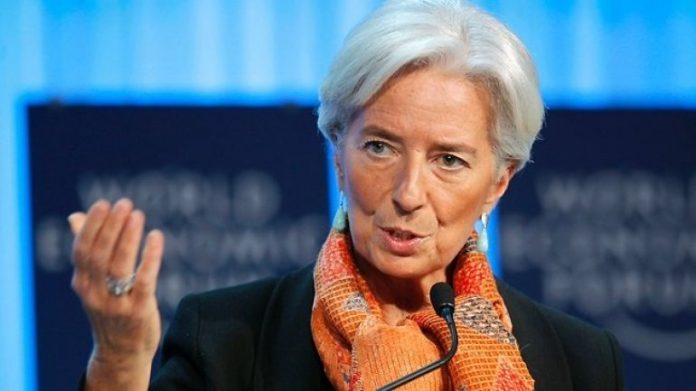Britain’s economy will shrink if the country leaves the European Union (EU) next year without a Brexit deal and any deal will leave the country financially worse off than staying in, the International Monetary Fund (IMF) said on Monday.
The IMF said it expected Britain’s economy to grow by about 1.5 per cent a year in 2018 and 2019 if a broad Brexit agreement was struck, compared with about 1.75 per cent if it had stayed in.
Failure to get a deal would lead to a contraction, IMF Managing Director Christine Lagarde said. “A more disruptive departure will have a much worse outcome,” she said as the IMF presented its annual report on Britain’s economy.
“Let me be clear, compared with today’s smooth single market, all the likely Brexit scenarios will have costs for the economy and to a lesser extent as well for the EU,” she said.
“The larger the impediments to trade in the new relationship, the costlier it will be. This should be fairly obvious, but it seems that sometimes it is not.”
Britain is due to leave the EU in March next year but London and Brussels have yet to strike a deal to secure a transition period. Prime Minister Theresa May is hoping to make progress towards a deal when she meets fellow EU leaders this week.
British Finance Minister Philip Hammond, speaking alongside Lagarde, said the government had to heed the “clear warnings” from the IMF of a no-deal Brexit. Hammond has been criticised by some Brexit supporters who say he wants to maintain a relationship with Brussels that would keep Britain under too much influence from the EU.
Many Brexit supporters say Britain must distance itself from Brussels in order to strike its own trade deals with fast-growing economies around the world.
The IMF said those kinds of deals would not offset the drag to the economy from leaving the EU.
Ruth Lea, an economist with Arbuthnot Banking Group and a Brexit advocate, accused the IMF of joining a new round of “Project Fear,” a term Brexit supporters use for pre-referendum warnings of the economic consequences of a Leave vote.
“Did they learn nothing from their loss of credibility after Project Fear Mark 1? In other words, stop making bold claims when you really don’t know what will happen,” Lea said on Twitter.
Britain’s economy — the world’s fifth-biggest — slowed after the 2016 referendum decision to leave the EU and it continues to be outpaced by most other rich nations.
However, stronger-than-expected data last week showed the economy had its fastest growth in nearly a year, helped by the World Cup and hot summer weather.
The IMF said there was a “daunting” range of issues still to be dealt with before Brexit.
Lagarde also said the IMF would lower its forecast for global economic growth when it updates its outlook in November.
“But I can say at this point, without disclosing any numbers, is that clouds on the horizon have not become lighter but darker,” she said.




